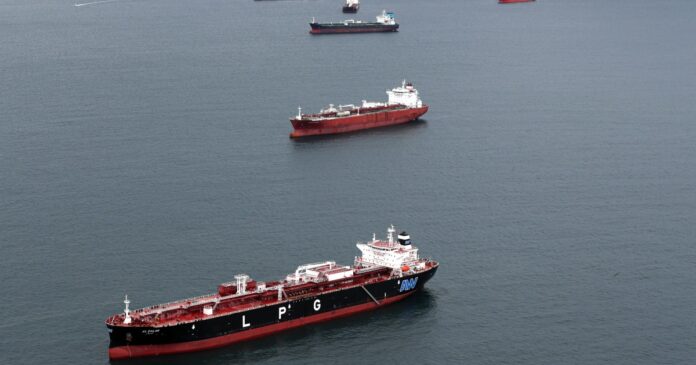Kyle Schaefer is worried that his days as a fishing guide are numbered.
He was one of five witnesses who appeared before the Senate Banking Committee on Wednesday to detail how climate change threatens the “blue economy,” a term that ecompasses the many ways that the world’s oceans contribute to the global economy.
“The climate trends pose a significant increase in risk and weaken my confidence in a prosperous future for my fishing businesses,” said Schaefer, an American who owns a small business in the Bahamas. “I may be forced to close my charter business within the next few seasons simply because there won’t be enough fish left.”
Climate scientists and economists have warned that climate change could do significant damage to the global economy in future decades — and that some of those changes are already happening now. A severe drought is hampering ships in the Mississippi River and global ocean temperatures reached record heights for nine straight months last year.
Sea level rise is somewhat counterintuitively also a risk, combining with more powerful storms to threaten crucial ports.
“Sea level rise impacts coastal ecosystems and infrastructure that underpin the blue economy including supply chains, real estate, infrastructure, agriculture, insurance markets, health costs and more,” Andrea Dutton, a professor at the University of Wisconsin-Madison in the department of geoscience, told the hearing.
Sen. Sheldon Whitehouse, D-R.I., chair of the Senate Budget Committee, called for urgency. His state counts ocean industries as a particularly important part of its economy.
“Ocean economies face particular risk from climate changes,” he said at the hearing. “You’ve heard the warnings. You saw the witnesses. They were serious grown-ups, experts in their fields. The early evidence of their warnings coming true is already visible. It’s time to wake up.”
The blue economy is projected to grow faster than the global economy in the coming decades and reach $3 trillion by 2030, according to the Organisation for Economic Co-operation and Development. According to the National Oceanic and Atmospheric Administration, 40% of people in the United States live on the coasts and are at higher risk of high-tide flooding, hurricanes, sea level rise, erosion and climate change.
Climate change — and most notably what to do about it — remain a highly politicized issue in Washington, though more Republicans have begun to embrace calls for urgent action.
Sen. Ron Johnson, R-Wisc., said the U.S. would need to balance its economic interests with its climate actions and pushed to hold China and India accountable for their output of harmful greenhouse gases.
“I’m not a climate change denier. I’m just not a climate change alarmist,” he said at the hearing.
Although no specifics were given on how government money can be spent in future bills to specifically aid the blue economy, witnesses and legislators all pointed to diminishing fossil fuel reliance as the core solution.
“Because humans are driving the rapid warming of our planet, that means that we are also the solution to this problem,” Dutton said. “Our climate future is not just a place that we get to go to, it is a place that we get to create together.”


